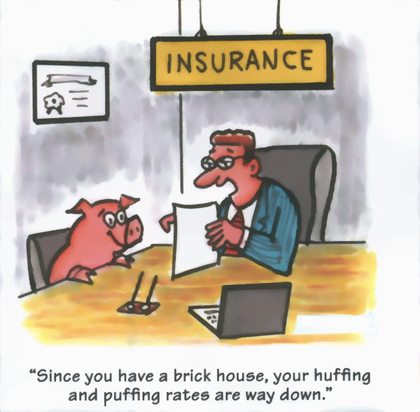Shopping can be fun and relaxing—unless it’s for insurance, particularly, homeowners insurance. Most people cringe at the thought of sitting down and trying to decide which coverage works best for them and their family. Let’s face it; looking around for homeowners insurance is the last thing you want to do. However, I have some quick steps to look at when deciding your insurance, and what would best narrow your choices.
Credit Score
Yes, that awful thing. Believe it or not, insurance companies will look at your credit score as a prediction of any losses they “may” acquire with you. Keeping track of your expenses and your due dates will help you greatly in getting accepted by the insurance company you want. Use credit score websites like equifax.ca to check out your score and see if it matches up with your own statements.
Background Check
It’s always good to get a full check of the house you are about to purchase before buying. This will save you a lot of hassle from trying to find the right insurance for your home. Ask your agent or the company you’re going through, for the history report of the house. Look for any damages or claims made in the past.
Pick and Choose
When you have your house and your insurance, don’t make every claim you can think of. This can harm you in renewing your insurance. Even though it would be nice to make a claim for that broken sink, it would be a lot worse if you ran out of room to use your insurance for the big things—like fire or burglary.
Home Verified
Home Verified will help show you the history of the house you’re thinking of buying or already bought. The report gives you details on any insurance claims that were made, when the claims occurred how much the claim was, if the home was ever a grow op or meth lab and local school and amenity information. You’ll want to check this out before purchasing a house although you do need the current home owners consent to run the report. The cost of this is $69.95 for non members and $49.95 for members. In my opinion it’s totally worth every penny! This goes back up to the “background check”—seeing what the house was like in its past to get an idea of how stable the home is.
Once you’ve gone through these, you should feel a little better at what to do when looking for homeowner’s insurance. It may be tricky, but it’s not the end of the world. Ask your neighbours, your friends, your colleagues—even look up insurers on the internet—have a solid group of pickings first, then go from there.
Would you pay for a report to get a home’s history before buying it?
***Infographic via Answer Financial, note they are US statistics***
